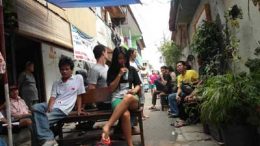The bottom line for decentralisation in Indonesia
Despite various moratoria imposed by an ineffectual central government, the Indonesian decentralisation Hydra continues to grow new heads. We’ve got a 34th province now officially on the books (Kalimantan Utara), and the tally of kabupaten/ kota has nudged over the 500 mark….










